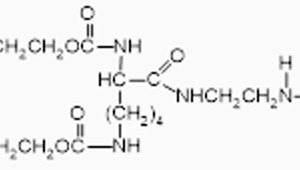MAL-PEG-MAL
Price range: $130.00 through $400.00
Maleimide-PEG-Maleimide (MAL-PEG-MAL) is available in molecular weights of 2,000, 3,400 and 5,000.
Packaged in 1 gram and 5 gram bottles.
Other MW available as custom products contact our Sales Team.
Shipping charges will be calculated based on the total order.
Description
Maleimide-PEG-maleimide (MAL-PEG-MAL) is a linear polyethylene glycol (PEG) product with maleimide functional groups at both ends and is used to introduce PEG chains to molecules containing thiol (SH) groups, such as proteins or peptides. PEGylation can improve the properties of these molecules, including solubility, stability, and pharmacokinetics.
Key Characteristics:
- Thiol-reactive: The maleimide group reacts specifically with thiol groups, making it useful for site-specific modifications. Enables precise protein and peptide crosslinking.
- PEGylated: The presence of PEG chains can enhance solubility, reduce immunogenicity, and prolong circulation time.
- pH-sensitive: The reaction between maleimide and thiol is pH-dependent, with optimal conditions typically at pH 6.5-7.5. At higher pH values, amines may compete with thiols for reaction, leading to non-specific modifications.
- Electrophilic Maleimide: Maleimides carbon–carbon double bond is strongly electrophilic and can react with reacts with nucleophilic reagents like amines and thiols.
- Selective Maleimide: selectively reacts with free thiol, sulfhydryl, or mercapto group via Michael addition to form a stable carbon sulfur bond.
Reference: https://www.masterorganicchemistry.com/2023/05/24/michael-addition-reaction-conjugate-addition/
Applications:
- Protein modification: PEGylation of proteins can improve their stability, reduce aggregation, and increase their half-life in vivo.
- Peptide modification: PEGylation of peptides can enhance their bioavailability and reduce degradation.
- Nanoparticle modification: PEGylation of nanoparticles can improve their biocompatibility and reduce clearance by the immune system.
- Surface modification: PEGylation of surfaces can create a hydrophilic and non-fouling layer, preventing non-specific interactions.
Additional information
| Molecular Weight | 2000, 3400, 5000 |
|---|---|
| Bottle Size | 1 gram, 5 gram |






